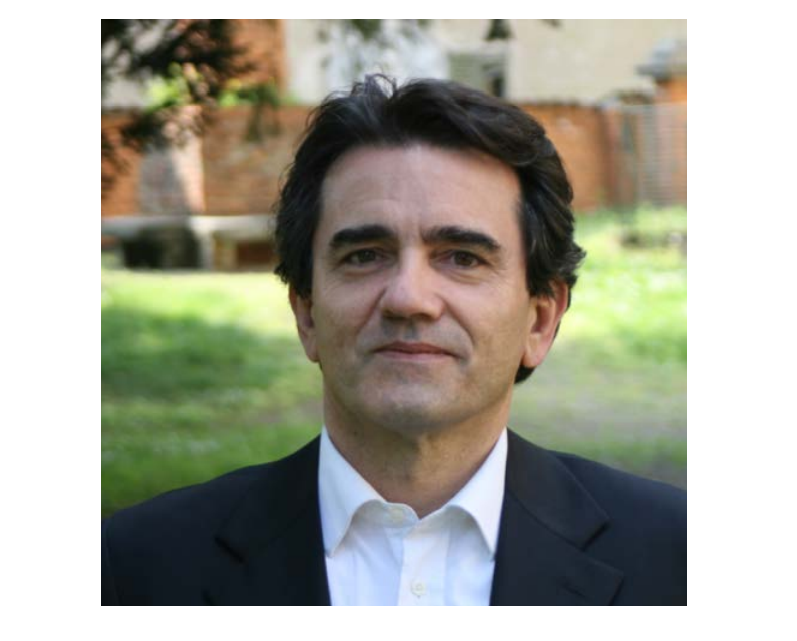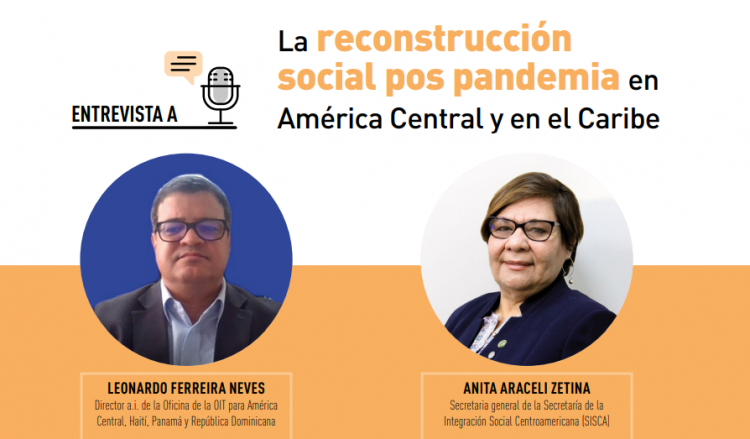By Francesco Maria Chiodi, coordinator of the Social Policies area of EUROsociAL+

The history of social contracts is a history of power and how it has been shared over time; which is why it tends to be rewritten at times of great social change[1]. We are currently experiencing one of these moments because of the concurrence of two long-term processes. On the one hand, we face challenges that we might call “epochal” without fear of exaggeration: climate change, technological development, population ageing and globalisation. On the other, we are witnessing a crisis and the insufficiency of a model of society that had made it possible to generate growth and social progress at the same time. This model is more established in Europe and is based on the mediation between the State, the market and society, on the balance between market economy and solidarity. Persistent inequality and political disaffection are two typical manifestations of this crisis.
The need to rethink the relationship between the State, citizens and companies[2] places Economic and Social Councils (CES) on a new and critical horizon. These institutions are a tool for participation that give citizens more a more influential role in political decision-making.
It is well-known that in both Europe and Latin America, the ESCs: (a) are consultative bodies of governments and (often) parliaments, which prepare proposals and recommendations on problems, legislative initiatives and public policies related to economic, labour and social matters; (b) they are made up of society’s most representative economic and social agents (sometimes they also include experts); (c) they are not spaces for negotiating demands, rather they guide decision-making in the general interest.
ESCs can improve the functioning of representative democracy. In a democratic regime, although the people hold the power, they do not exercise it. The exercise of power is entrusted to just a few people (parliamentarians and governors) through electoral mechanisms: “electoral democracy does not decide on the questions, but decides who will decide on the questions”[3]. From this perspective, the ESCs are a complementary form of representation, since they stand between the representatives and the electorate. Although they do not have decision-making powers, they guide the process as “consultants”. Unlike other forms of participation, the ESCs perform their function in an institutionalised manner, that is, they have been created precisely for the purpose of advising the authorities.
It should be noted that parliamentarians and rulers act in the interests of the general will of the people, without distinctions of culture, social group, profession, etc. By contrast, the members of the ESCs are not representatives of the population in a generic sense, but only of representative organisations of certain interest groups. Which interests? This point is essential to understanding the evolution of the ESCs and analysing the conditions under which they can effectively support the gestation of new social pacts and give new life to democracy.
Most of the ESCs were created in Europe in the 20th century and are the “offspring” of the social pact currently in crisis. This pact took shape in Europe after the Second World War and led to several decades of economic prosperity and progress in rights. The welfare state is its most symbolic creation. In that historical context, the world of work and production defined the horizon of political and social debate. There was a tendency to identify active citizenship with worker participation[4]. This meant that the ESCs were essentially conceived as spaces for participation of business and trade union organisations.
The ESCs in Latin America share the same conceptual background, but are implemented in a different institutional and socio-economic context. However, that 20th century world no longer exists in either of the regions. In many cases, work has lost prominence as the main generator of income, as a source of individual and collective identity that inspires great ideological narratives. In addition, these days people are working less. Ways of working and the productive organisation have also changed. Working lives are no longer linear, continuous or stable like they were in the last century. We are witnessing the expansion of an autonomous segment of the labour force, with little guardianship and no community of peers —Semenza and Mori call it “stateless work”[5], which does not fall within traditional contractual categories. This partly explains the weakening of union organisations and the existence of a micro and autonomous business world with no niche within traditional representations. These phenomena which are also very common in Latin America, which is a fertile ground for the informal labour and business that has always prevailed in their labour markets.
Likewise, the societies of both regions are increasingly defined by consumption. Consumerism accompanies and simultaneously drives the individualisation of lifestyles. This new “essence” is explained by different factors: changes in the sphere of work, levels of welfare achieved, more freedom and free time, the cultural and customs revolution that began in the 1960s, market pressures, among others. Subjectivity has become a hallmark of modern consciousness. In a context that encourages social fragmentation, not only have demands and initiatives been diversifying and multiplying, many of them have also entered the public agenda. Civil society looks like a mosaic of a thousand randomly arranged pieces: associations, movements, local organisations, etc.
ESCs in Europe and in Latin America have adapted to these changes by adopting a more pluralistic model of participation, which is both inclusive and open to different stakeholders old and new types of interests. Therefore, if the one hand new public policy issues have been integrated into the traditional catalogue of the ESCs, on the other, a third pillar – that of civil society – has been added to the membership of the Councils, alongside the two traditional social partners[6].
Although the latter is a very significant innovation, there are still some questions, particularly the following three:
(1) Which social interests should be included and which should not? (environment, gender equality, rights of ethnic and national minorities etc.)
(2) How to ensure that stakeholders are adequately represented? (for example, which environmental groups? which women’s organisations?)
(3) How to avoid particularistic or corporate approaches, especially among some organisations accustomed almost exclusively to defending their own interests or working on specific issues, without experience in other areas?
Rather than providing answers, this document merely raises the importance of these questions. These are crucial issues to understand how an ESC can cater for the plurality of expressions of civil society, especially in a time when political parties have become weary.
Given the difficulty of covering the vast range of issues, interests and formations that animate organised civil society, it seems sensible to encourage (and demand) grouping and federation. This would allow at least some sectors to elect their representatives; but it cannot be applied to all interest groups, because the issues that they deal with are so different that they barely converge.
Of course, what is crucial is the representativeness of those with a seat in an ESC (which should be able to be evaluated), and that beyond the groups that join, the ESC must be able to effectively perform its role as a bridge between citizens and authorities, systematically perform their consultative role with the population and its organisations. Several of them already operate along this line, which is decisive if citizens and civil society are to feel that ESCs are appropriate channels in which to be heard and to have influence. Therefore, the ESCs will be stronger (and more legitimate) to act as facilitators of new social pacts. And they will help to revitalise liberal-democratic regimes, which in many countries are showing clear signs of difficulty. Deep democracy requires the active contribution of civil society.
[1] Ross A. (2021), The Raging 2020s: Companies, Countries, People – and the Fight for Our Future, Henry Holt and Co.
[2] These days there is much talk of a new socio-ecological contract to address the need to incorporate a fourth subject: the environment (cf. UNRISD. [2021], New Eco-Social Contract: Vital to Deliver the 2030 Agenda for Sustainable Development, at www.unrisd.org/ib11
[3] Sartori, G. (2009), La democrazia in trenta lezioni, Mondadori, Milano
[4] One notable example of the virtual interchangeability of the terms is found in the Italian Constitution of 1948, whose Article 1 declares that “Italy is a democratic Republic founded on work” and, in Article 3, it establishes that “It is the responsibility of the Republic to remove the economic and social obstacles that […] hinder the full development of the human person and the effective participation of all workers in the political, economic and social organisation of the Country”.
[5] Semenza, R. and Mori, A. (2020), Lavoro apolide, Fondazione Giangiacomo Feltrinelli, Milano
[6] For example, the ESC of France in 2008 has changed its name to the Economic, Social and Environmental Council. Since this happened, it has opened up to young people, women and environmental groups. In the Dominican Republic, to give another example, before the 2021 reform it consisted of 26 members of the business sector and seven and nine, respectively, from the labour and social sectors. Now, in contrast, all three blocks are equal participants.




